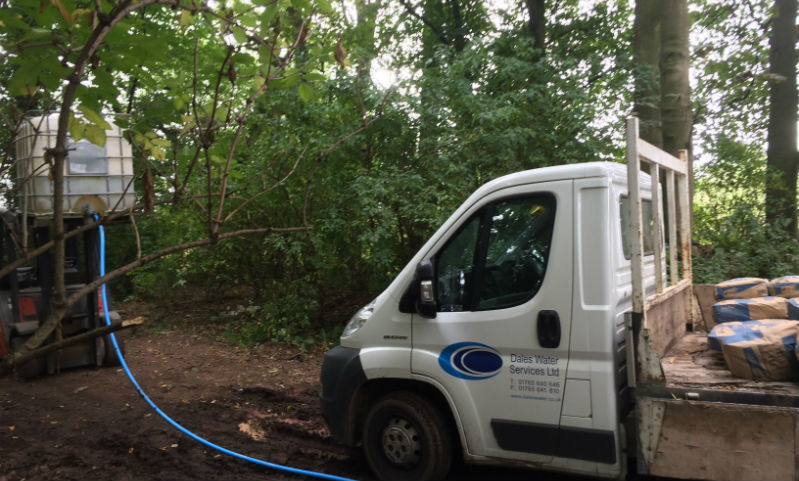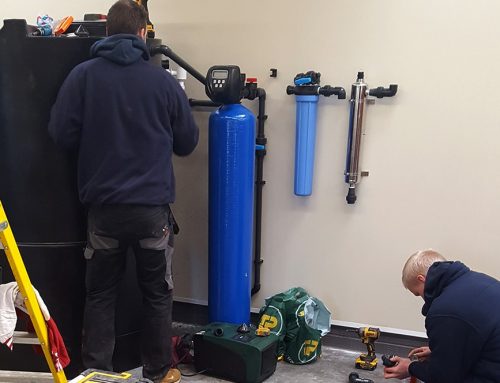The Environment Agency (EA) and DEFRA are proposing to change the abstraction licencing regime in England and Wales, the first time substantial changes have been made in approximately 60 years. They have released a consultation on this that can be found here.
This briefing note has been prepared to highlight the changes that are being proposed by the Environment Agency and provide our opinion on these changes following a workshop that has recently been run by the EA and DEFRA. It is by no way conclusive or covers all issues present and is our own opinion and interpretation of the changes.
The changes the EA and DEFRA are proposing are ongoing and we would recommend that anyone with an abstraction licence who may be affected by the changes proposed considers the full documents and provides independent feedback which can be done through the provided link. As ever we are happy to discuss any abstraction licence issue or the consultation with individual clients.
Why are they changing the regime?
The EA and DEFRA consider that to meet the challenges of climate change and to provide ongoing flexibility into the future, protect the environment, stimulate business and ‘free up’ water that change is required to remove some of the problems with the current regime.
For instance they consider that the process of licence trading (where by unused amounts within a sub catchment can be offered to others) is too complex and time consuming to work in a real world situation and that people should only be charged for what they use (you currently get charged against the potential amount you could abstract).
ALL licences, including those who have a Licence of Right, will be brought into the new system; therefore these changes affect ALL licence holders.
Our opinion is that long term simplification is good, as long as it achieves what it sets out to do. Water management is complex and should not be underestimated. Light regulation is a positive step as long as the site specific side of regulation is not lost which is imperative to protect the environment but also facilitate business.
What are they proposing?
They are proposing two different options:
Current System Plus. This would:
- Allow more water to be abstracted when more water is available.
- Make it easier to trade water (low risk and temporary).
- Remove the time limits associated to abstractions.
- Surface water abstractors would be notified, potentially at 2 weeks notice (subject to confirmation) that the volume they can abstract is being reduced for protection of the Environment.
Water Shares. This would:
- Allow an abstractor to have a share in the available resource, rather than an amount.
- Abstractors would receive a water allocation based on the available resource and the reliability and size of their share.
- This may only be for a short duration, although most if the time it is not expected to change.
Under both options time limits would be removed and the charges made would be against actual consumption rather than the licensed amount.
A third option of pay as you go has been discounted.
Our opinion following our attendance at the DEFRA / EA workshop is that there seems to be confusion amongst the regulators. They recognise the important role that abstraction plays for business in allowing them to operate and grow, with water (energy) being critical in this process, but are then suggesting it is acceptable for short duration blanket change criteria to be applied should it be concluded the Environment needs to be protected which is unworkable for business.
In essence they are saying in both circumstances that time limits will be removed which is positive for business certainty and business growth however conversely are saying that it is possible to reduce an abstractor (including those with Licence of Rights) at very short notice which is difficult for business planning as knowing how much water you have available is vitally important to a business. Water trading could become a problem where by people/companies could charge high amounts or new players could enter the market with no abstractor purpose other than to ‘tie up’ water to trade at a later date – how this is implemented is therefore key. The Water Shares option is also too complex and unclear, shares of water are meaningless.
Our opinion is that of the two, ‘Current System Plus’ is preferable. In particular we can see the advantage of allowing a seasonal abstractor to abstract more water in a winter period if it is available which will also encourage storage (as long as they can operate like this – not all businesses can!) and we think it is correct that you should only ever be charged for what you use, there is little else in life where you are charged on you potentially having something as per the current system. However, as much notice as possible (a lot longer than 2 weeks) has to be provided to abstractors if changes are to be made to allowances (difficult in a dynamic system).
We would also query the cost of reform, in many instances there is no water shortage in many catchments and there remains unlikely to be even with the effects of climate change. What is the point of reforming something, which while not perfect, is only replaced with another non perfect solution at additional cost?
When would changes happen and how would this happen?
It is proposed that the transition to any new system will occur in 2020, plenty of time between now and then. How this will happen is slightly more complex, all licences are to be reviewed to establish what an abstractor is actually using and how this relates to their actual current licence. It is then proposed that potentially an abstractor may be allowed to keep their existing volume including any headroom that they have not been using, to either trade or for business planning purposes or they may lose this volume (either voluntarily or compulsory) which goes back into the available resource (water reserve) for other / new abstractors.
This raises further questions: What is the actual use – this is influenced by many factors such as climate, the economy, business performance, industry sector, area of the country, how long a period you look at, do you just look at the average peak years etc. It also raises the question of how you apply this – universal against all abstractors or per catchment. Universal may be fairer but differences in the catchments are fact and it may be incorrect not to consider them.
Our opinion is that if changes occur that catchment based information has to be taken into consideration, and in fact we think this actually needs to be site specific information, i.e.: reviewed on a case by case basis.
What next and what should you do?
The consultation lasts until the 28th March after which the responses will be considered by DEFRA and the EA. We would strongly advise all of our clients to respond to the consultation paper that has been released which can be found here and in the meantime remember that these are only proposals. It was evident in our recent workshop with the EA and DEFRA that the proposals are at an early stage and that the EA and DEFRA have a lot more work to do before anything is definitive; a lot of stakeholders are involved all of who have an opinion on this. Some of whom hold the same opinion as us.
If you would like to discuss what this may mean to your business please contact Jonny at Dales Water he will provide the best advice that he can and where necessary can prepare your response on behalf of your company. He will shortly be preparing the response to the consultation on behalf of Dales Water Services.
In closing we consider that the changes to the regime will probably have greater impact on surface water abstractors as opposed to groundwater abstractors as surface water is related more to prevailing weather conditions than groundwater although all abstractors should take an interest.
When a company, and in many cases individuals, are looking to establish themselves the available resources play an integral role in deciding that location. Those in a resource rich area should not be penalised, although we do concur that certain overarching criteria should be applied in all circumstances as long as these are not to create an even playing field for business. Where a business chooses to locate affects its cost for, and availability of, natural resources and this should remain the same.
Furthermore site specific data must be considered as there may be good reason why an abstractor has reduced the amount of water they are using. For instance they may have invested in the best available technology to be as water efficient as possible. With the reasoning being that the water and money saved will allow them to expand into the future based on their current licensed amount (theoretically they would be saving water against this amount), this information would be lost if changes were applied at a universal level and the company unfairly penalised.
We further think that if a business can still justify the volume of water it has not used over the last, say, 6 years, that this should remain on their abstraction licence. Where a business cannot present a justifiable business plan to retain all or part of this water then this should become available water for new or other existing abstractors.
Relaxing water trading and the creation of a water reserve are opposing visions that we do not think will work in conjunction. It is not possible to allow abstractors with additional headroom (unused water) to retain their volume for trading purposes but at the same time create a water reserve available for everyone. In our opinion a water reserve of unused water available for everyone from the regulator is better and removes the potential variability in costs presented by trading.
If you have any questions about these proposals, the consultation or abstraction licenses in general place contact us.



